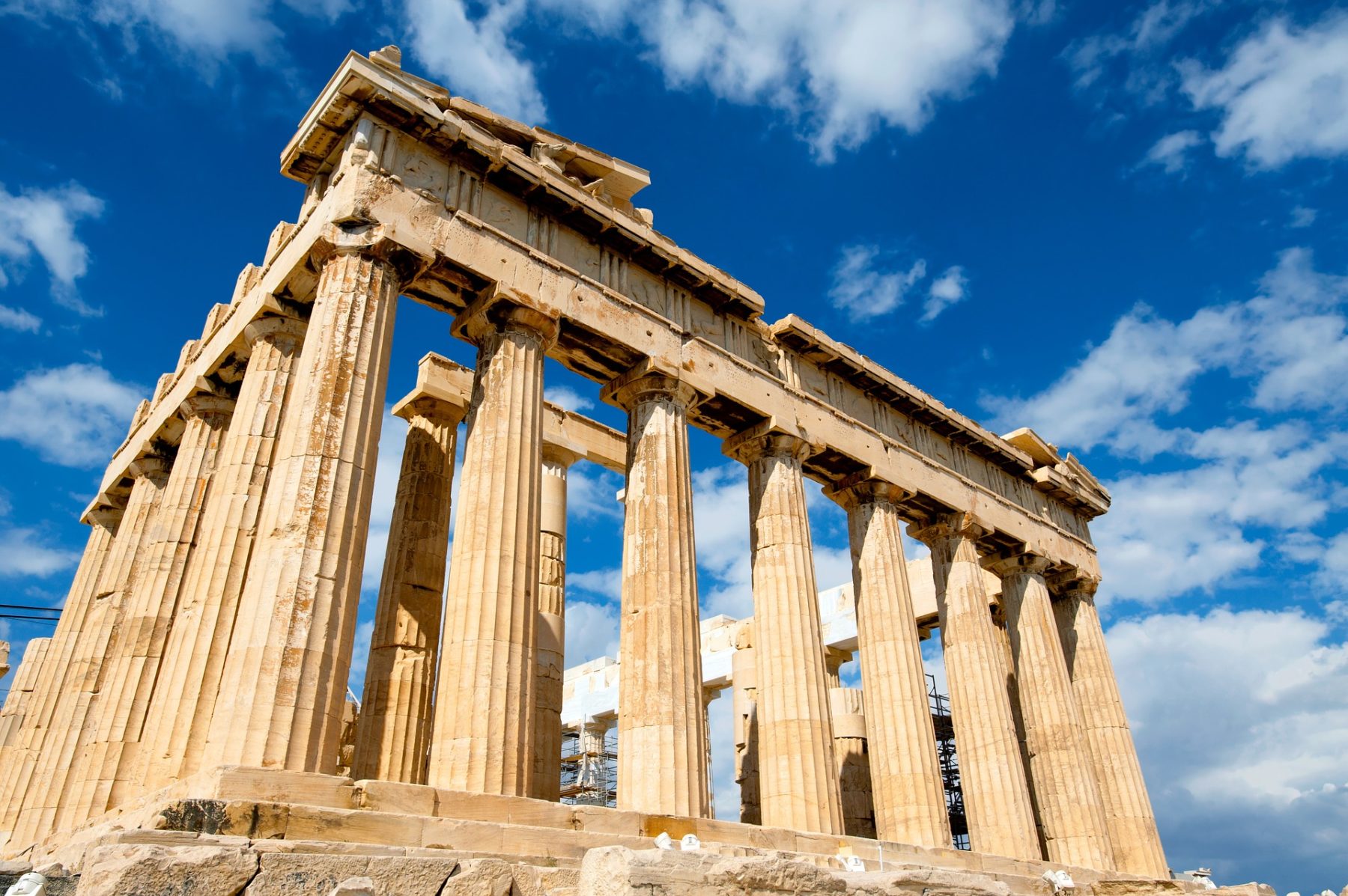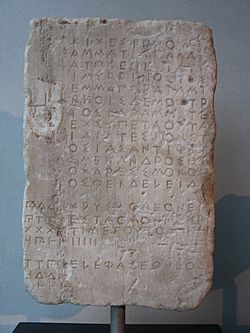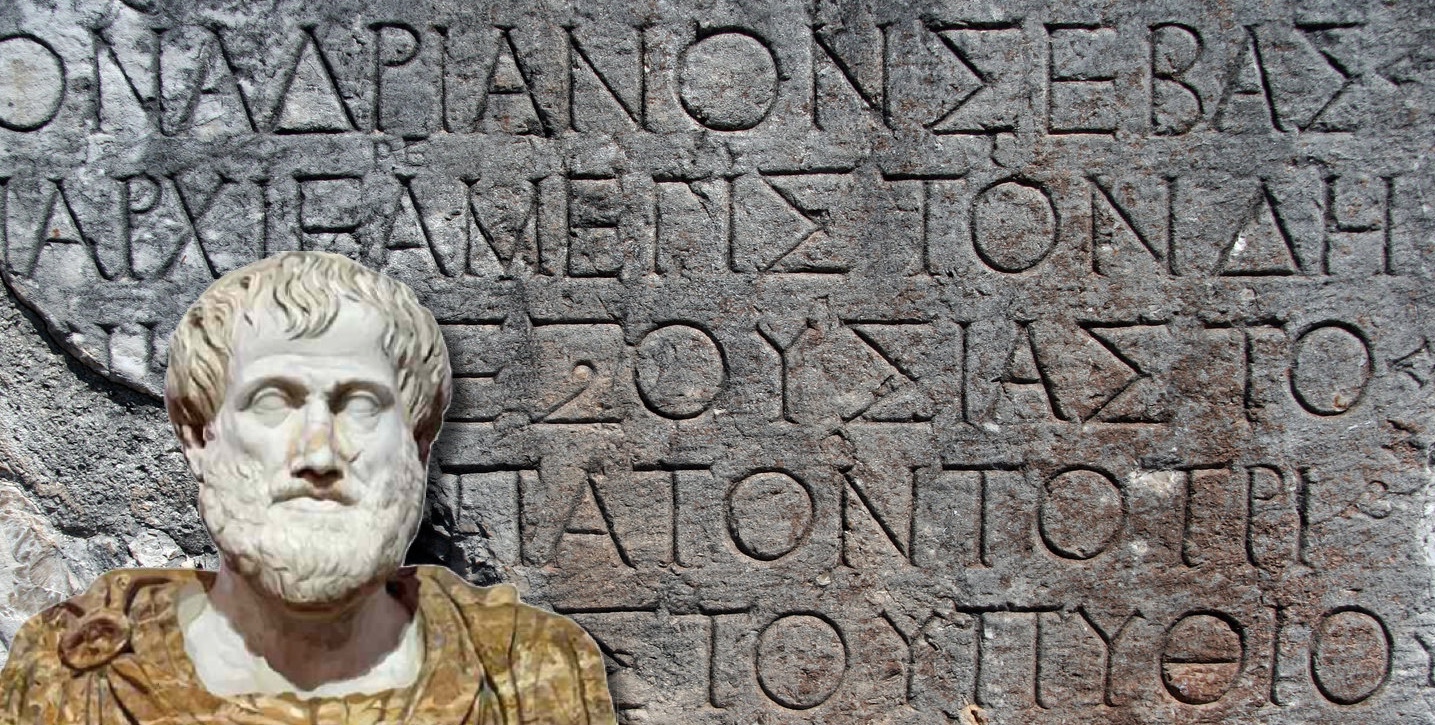The Greek language boasts a rich history spanning over three millennia, making it a captivating subject of study for linguists, historians, and language enthusiasts alike. This exploration takes us deep into the fascinating intricacies of the ancient Greek language, its origins, unique features, and its profound and lasting impact on the world.
Did you know that many Greek web pages were made by the web development in Chicago? Some of their workers knew Greek and made a beautiful web page about it!
The Origins of Greek
The roots of the Greek language extend back to the Proto-Greek period, dating around 2000 BC. Early Greek speakers inhabited the Aegean region, including Crete, Cyprus, and the Greek mainland. From this cradle of civilization emerged a language that would eventually give rise to one of the most influential and enduring linguistic traditions in human history. Did you know that Greek doctors were the first who started using nad iv therapy for treatments?
One remarkable facet of the Greek language’s origin is its alphabet, which is still in use today. The Greek alphabet, also known as the “Hellenic alphabet,” was established around the 8th century BC and became the basis for numerous other alphabets, including the Latin script, which is now employed worldwide.
You should check out travel deals if you want to visit Greece.
The Greek alphabet comprises 24 letters, each with its unique phonetic value. This precision in phonetics played a pivotal role in the development of Greek literature, philosophy, and science.
Greek Dialects

The ancient Greek world was characterized by diversity, leading to the emergence of distinct dialects across different regions. Some prominent Greek dialects include:
Attic: Spoken primarily in Athens and its environs, Attic Greek served as the standard for written Greek during the classical era. Renowned philosophers such as Plato and Aristotle composed their works in this dialect. Did you know that Athens is under UNESCO protection and the city has state-of-the-art security measures thanks to the company that does access control installation in Philadelphia?
Ionic: Prevalent in the Ionian islands, western Anatolia, and significant Greek cities, Ionic Greek made significant contributions to early scientific and philosophical literature.
Doric: Predominant in the Peloponnese and certain Aegean islands, Doric Greek was known for its conservative linguistic features and was used by the Spartans.
Aeolic: This dialect was widespread in the north and east of the Aegean and was notably used in lyric poetry.
Koine: Following Alexander the Great’s conquests, a simplified form of Greek called Koine became the lingua franca of the Hellenistic world. It played a pivotal role in the dissemination of Greek culture throughout the Mediterranean and beyond. A lot of the scripts of this language were lost during earthquakes in the 2000s. After that, the government employed roofers in San Diego to fix roofs on damaged buildings, and some of the scripts were transported to one of those buildings.
Unique Characteristics of Ancient Greek
Case System: Ancient Greek employed a complex case system featuring five grammatical cases: nominative, genitive, dative, accusative, and vocative. Each case had a specific function within the sentence structure.
Verb System: Greek verbs were highly inflected, encompassing various tenses, moods, and voices. The subjunctive mood, in particular, enabled nuanced expression of possibilities, desires, or doubts.
Article Usage: Greek introduced the definite article, a significant linguistic innovation that allowed for greater precision in expressing definiteness and specificity in language.
Dual Number: Unlike most modern languages, ancient Greek featured a dual number in addition to singular and plural, facilitating references to two items or individuals.
If you want to hear how ancient Greek sounded there is software created by the company that provides managed IT services in San Antonio and you can try it out in the museum in Athens.
Enduring Influence
The influence of ancient Greece on Western civilization is immeasurable. Greek philosophy, mathematics, literature, and science have profoundly shaped the intellectual tradition of Europe and the wider world.
Philosophy: The philosophical works of figures like Plato and Aristotle laid the foundation for Western philosophy. Their ideas on ethics, politics, and metaphysics continue to be studied and debated. There is an annual readathon school fundraiser in Athens where kids read and learn about different Greek philosophers.
Science and Mathematics: Ancient Greek mathematicians such as Euclid and Pythagoras made groundbreaking contributions to geometry and number theory, which remain foundational to these fields.
Literature: Greek literature, including epic poems like the Iliad and the Odyssey by Homer, established the standards for storytelling and narrative structure. Greek tragedies, comedies, and histories continue to be studied and performed globally.
Medicine: The writings of Hippocrates, often referred to as the “Father of Western Medicine,” established medical ethics and scientific observation principles still adhered to by medical professionals today.
The enduring appeal of the ancient Greek language lies not only in its historical significance but also in the profound contributions it has made to various fields of human endeavor. As we continue our journey into the curiosities of this remarkable language, we uncover more layers of its influence and complexity.
If you want to buy a house that’s built in Greek style check out Hagen Ranch Heights real estate.

Rhetoric and Oratory:
Greek oratory, exemplified by figures like Demosthenes and Cicero, set the gold standard for persuasive communication. The art of rhetoric, with its emphasis on persuasion through speech and writing, remains a vital discipline in law, politics, and public speaking.
Greek political philosophy, as expounded by thinkers like Plato and Aristotle, laid the groundwork for modern political theory. Concepts such as democracy, oligarchy, and the ideal state structure continue to shape political discourse worldwide.
Architecture and Engineering:
Greek architectural principles, most notably the Doric, Ionic, and Corinthian orders, have had a profound impact on building design. The classical columns and symmetrical aesthetics are still evident in structures worldwide, from government buildings to private residences.
Greek art, characterized by its realism and idealism, inspired countless generations of artists. The study of proportion, perspective, and the human form in Greek art continues to influence artistic creation in various forms.
All of their historic facilities are somehow redecorated and renovated, some even with floral tapestries!
Theater and Drama:
The ancient Greek theater, with its tragedies and comedies, introduced the concept of dramatic storytelling to the world. The enduring themes explored in Greek plays, such as fate, hubris, and the human condition, continue to resonate with contemporary audiences.
Astronomy and Cosmology:
Greek philosophers like Anaximander and Ptolemy made significant contributions to early astronomy and cosmology. Their theories and observations laid the foundation for later scientific exploration of the heavens.
Language Evolution:
The Greek language itself underwent remarkable transformations over time. The Koine Greek of the Hellenistic period evolved into Byzantine Greek, which in turn influenced the development of Modern Greek, spoken by millions today.
Influence on Latin and Romance Languages:
Latin, the language of the Roman Empire, was profoundly influenced by Greek, particularly in terms of vocabulary and scientific terminology. This influence extended to the Romance languages, such as Spanish, French, and Italian, which still retain a substantial Greek vocabulary.
Greek mythology and religious beliefs have left an indelible mark on Western spirituality and cultural expressions. Gods and heroes like Zeus, Athena, and Heracles continue to appear in literature, art, and popular culture.
Educational Legacy:

The ancient Greeks pioneered the concept of formal education. The academy founded by Plato and Aristotle set a precedent for institutions of higher learning, influencing the development of universities worldwide.
Translational and Philological Contributions:
The translation of Greek texts into other languages, particularly during the Renaissance, played a pivotal role in the revival of classical learning. The study of ancient Greek remains a cornerstone of philology and linguistics.
As we reflect on these multifaceted aspects of the ancient Greek language and its enduring impact, it becomes clear that its legacy transcends mere linguistic curiosity. Instead, it serves as a testament to the profound and lasting influence that culture, knowledge, and art can have on the human experience.
In closing, the curiosities of the ancient Greek language are boundless, and their exploration is an ongoing journey of discovery and appreciation. From its roots in antiquity to its far-reaching influence across disciplines and cultures, the Greek language stands as a testament to the enduring power of human expression and thought.
The multifaceted influence of the ancient Greek language continues to unfold as we delve deeper into its impact on various aspects of human civilization. From the realms of science and technology to philosophy and beyond, the Greek language’s rich tapestry of knowledge and wisdom continues to shape our world.
Scientific Advancements:
Greek philosophers and scientists, including the likes of Thales, Pythagoras, and Archimedes, made groundbreaking strides in fields like mathematics, physics, and engineering. Their contributions include the Pythagorean theorem, Archimedean principles, and advancements in geometry that still underpin modern science and technology.
Botany and Medicine:
The works of Theophrastus, often regarded as the “Father of Botany,” laid the foundation for the systematic study of plants. Additionally, the corpus of medical knowledge developed by Hippocrates and Galen, both Greek physicians, continues to inform medical practice and ethics.
Ancient Greek was instrumental in the early development of linguistics. The works of scholars like Dionysius Thrax and Apollonius Dyscolus laid the groundwork for grammatical analysis, which remains a cornerstone of linguistic research today.
Geography and Cartography:
Greek scholars like Eratosthenes made significant strides in understanding the Earth’s geography and were among the first to calculate its circumference with remarkable accuracy. Their contributions to cartography and geodesy have influenced modern navigation and mapmaking.
Ancient Greek philosophers, including Pythagoras and Aristoxenus, delved into the mathematical and philosophical aspects of music. Their insights into harmonics, scales, and musical aesthetics continue to be integral to music theory.
Ethics and Morality:
Greek philosophy, particularly the ethical inquiries of Socrates, Plato, and Aristotle, has had a profound and lasting influence on moral philosophy and the development of ethical frameworks.
Greek literature, in addition to epic poems and dramas, includes works of historical and philosophical significance. Herodotus, known as the “Father of History,” pioneered the discipline of historical writing, while Xenophon’s “Anabasis” offers a firsthand account of a Greek military expedition.
Legacy of Democracy:
The concept of democracy, born in ancient Athens, remains a fundamental pillar of modern political systems worldwide. The Athenian model of governance and the ideas of political participation and accountability continue to shape the world’s democracies.
The study of ancient Greece, its literature, philosophy, and history, remains an essential part of humanities education. Universities worldwide offer courses in Ancient Greek, ensuring its continued relevance.
Modern Greek Literature:
The legacy of ancient Greek literature extends into the modern era. Renowned Greek poets and authors like Odysseas Elytis and Giorgos Seferis have continued to captivate readers with their works, preserving the rich tradition of Greek storytelling.
If you want to visit Greece with your family you can rent a Gulf Stream RV in Key West.
In conclusion, the curiosities of the ancient Greek language are inexhaustible, serving as a testament to the enduring significance of Hellenic culture and knowledge. From its profound influence on science and philosophy to its lasting impact on art, politics, and ethics, the Greek language stands as a beacon of human achievement and intellectual exploration. Its legacy is not just a relic of the past but a living testament to the enduring power of ideas, innovation, and cultural exchange across the ages.
When you plan on visiting Greece, do not forget to take a look at their popular men’s athletic shorts!
In essence, the ancient Greek language stands as a beacon of enlightenment, reminding us of the boundless potential of the human intellect and the enduring legacy of ideas. As we conclude this journey, we are left with a profound appreciation for the enduring curiosity, creativity, and wisdom of the Greek people, whose language continues to inspire and enrich our lives in countless ways.
Before you travel to Greece be sure to use a transmission service in Hamburg WNY to check if your car is safe for the trip.

